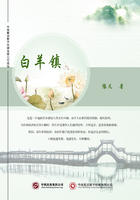This state of affairs would probably be more actively resented if the people were capable of resenting anything but their own hunger, or of fearing anything but a general collapse which would turn that hunger into starvation.It must be remembered that the urgency of the economic crisis has driven political questions into the background.The Communists (compare Rykov's remarks on this subject, p.175) believe that this is the natural result of social revolution.They think that political parties will disappear altogether and that people will band together, not for the victory of one of several contending political parties, but solely for economic cooperation or joint enterprise in art or science.In support of this they point to the number oftheir opponents who have become Communists, and to the still greater number of non-Communists who are loyally working with them for the economic reconstruction of the country.I do not agree with the Communists in this, nor yet with their opponents, who attribute the death of political discussion to fear of the Extraordinary Commission.I think that both the Communists and their opponents underestimate the influence of the economic ruin that affects everybody.The latter particularly, feeling that in some way they must justify themselves to politically minded foreign visitors, seek an excuse for their apathy in the one institution that is almost universally unpopular.I have many non-Communist friends inRussia, but have never detected the least restraint that could be attributed to fear of anybody in their criticisms of the Communist regime.The fear existed alike among Communists and non-Communists, but it was like the fear of people walking about in a particularly bad thunderstorm.The activities and arrests of the Extraordinary Commission are so haphazard, often so utterly illogical, that it is quite idle for any one to say to himself that by following any given line of conduct he will avoid molestation.Also, there is something in the Russian character which makes any prohibition of discussion almost an invitation to discuss.I have never met a Russian who could be prevented from saying whatever he liked whenever he liked, by any threats or dangers whatsoever.The only way to prevent a Russian from talking is to cut out his tongue.The real reason for the apathy is that, for the moment, for almost everybody political questions are of infinitesimal importance in comparison with questions of food and warmth.The ferment of political discussion that filled the first years of the revolution has died away, and people talk about little but what they are able to get for dinner, or what somebody else his been able to get.I, like other foreign visitors coming to Russia after feeding up in other countries, am all agog to make people talk.But the sort of questions which interest me, with my full-fed stomach, are brushed aside almost fretfully by men who have been more or less hungry for two or three years on end.
I find, instead of an urgent desire to alter this or that at once, to- morrow, in the political complexion of the country, a general desire to do the best that can be done with things as they are, a general fear of further upheaval of any kind, infact a general acquiescence in the present state of affairs politically, in the hope of altering the present state of affairs economically.And this is entirely natural.Everybody, Communists included, rails bitterly at the inefficiencies of the present system, but everybody, Anti-Communists included, admits that there is nothing whatever capable of taking its place.Its failure is highly undesirable, not because it itself is good, but because such failure would be preceded or followed by a breakdown of all existing organizations.Food distribution, inadequate as it now is, would come toan end.The innumerable non-political committees, which are rather like Boards of Directors controlling the Timber, Fur, Fishery, Steel, Matches or other Trusts (since the nationalized industries can be so considered) would collapse, and with them would collapse not only yet one more hope of keeping a breath of life in Russian industry, but also the actual livelihoods of a great number of people, both Communists and non-Communists.I do not think it is realized out-side Russia how large a proportion of the educated classes have become civil servants of one kind or another.It is a rare thing when a whole family has left Russia, and many of the most embittered partisans of war on Russia have relations inside Russia who have long ago found places under the new system, and consequently fear its collapse as much as any one.One case occurs to me in which a father was an important minister in one of the various White Governments which have received Allied support, while his son inside Russia was doing pretty well as a responsible official under the Communists.Now in the event of a violent change, the Communists would be outlaws with a price on every head, and those who have worked with them, being Russians, know their fellow countrymen well enough to be pretty well convinced that the mere fact that they are without cards of the membership of the Communist Party, would not save them in the orgy of slaughter that would follow any such collapse.















